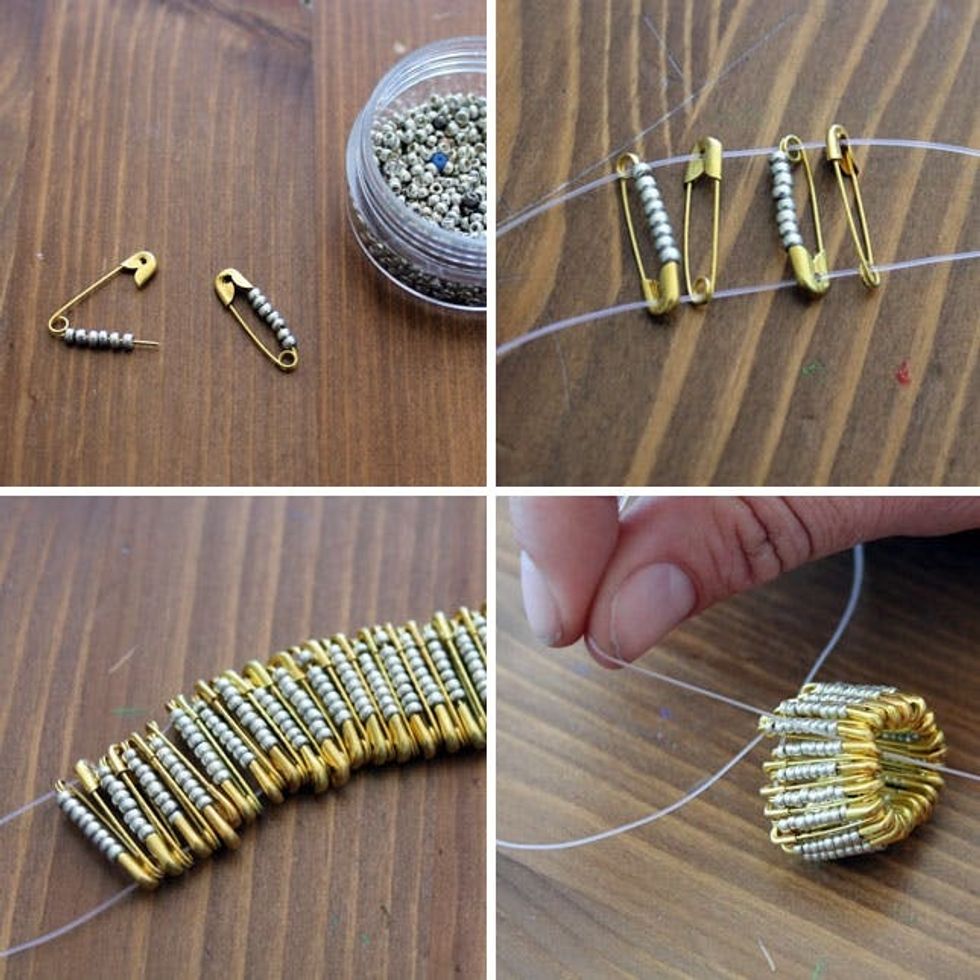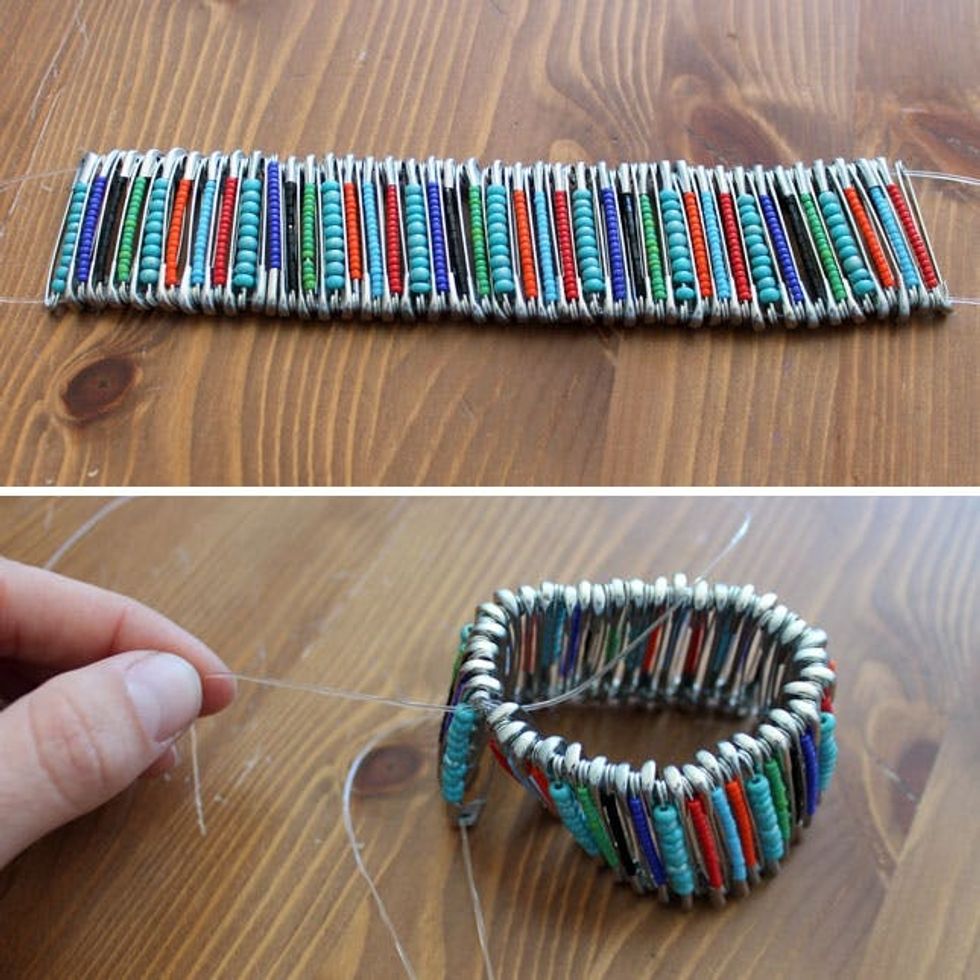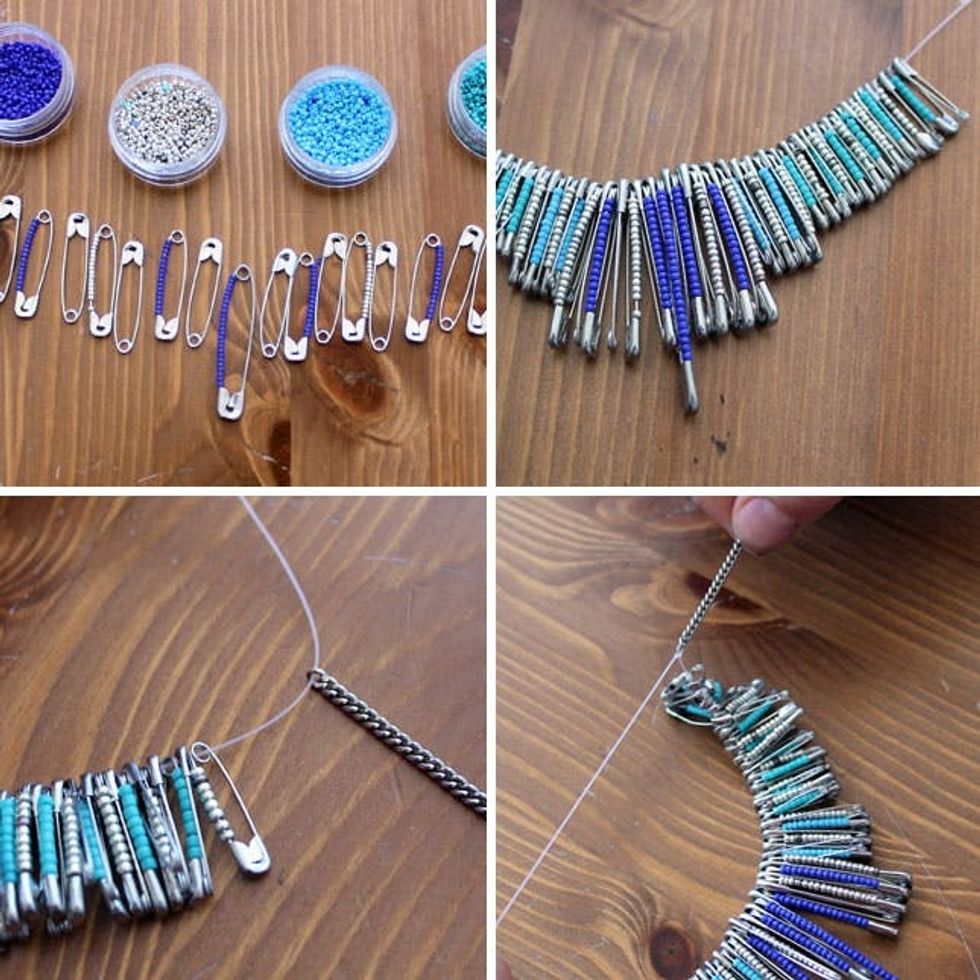How to Create Beaded Baubles with Safety Pins


If you were a child of the 80s or 90s, you probably remember putting beads on safety pins and attaching them to your Jansport backpack for a little extra flair. Today, we’re taking the beaded safety pin to a seriously stylish level. All you need are safety pins, beads, and elastic string!
Materials
– safety pins of various sizes
– beads
– elastic string
– chain
First up, the Safety Pin Ring.

For this one, we used those itty bitty gold safety pins often found in sewing kits.

Place beads on half of the pins you’re using. When you string, place each beaded pin on the elastic, then follow with a non-beaded pin in the opposite position (upside down) from the beaded pin.

Continue and then secure by tying the elastic at each end.
Hard to believe that safety pins can look so chic!

Next, the Cuff.
You can use just about any size safety pin for this. We used a standard 1 1/2 inch size.

The process for this is the same as the ring, but you’ll probably want to lay things out and organize by color. For every beaded pin, string on a non-beaded pin until you’re done.

Secure by tying the elastic at the ends, and you’re done!

Looks pretty darn good with a pair of polka dot pants, don’t you think? ;)

Finally, the Necklace!
For this one, you’ll use a variety of sizes to create a chic design. We limited our color palette to blue and silver to keep things a little more simple.

Bead your pins and string onto the elastic with non-beaded pins in between, like with the other projects. Attach chain on each side, add clasps, and that’s it.

This little how-to is a great way to create custom colored jewelry for an upcoming party or event, and you can easily find all the supplies at your local craft store, on Amazon, or even at the pharmacy!

Have you tried your hand at using safety pins in unconventional ways? Any other summer camp throwbacks that we can easily turn chic? Talk to us in the comments below or come find us on Twitter.

















